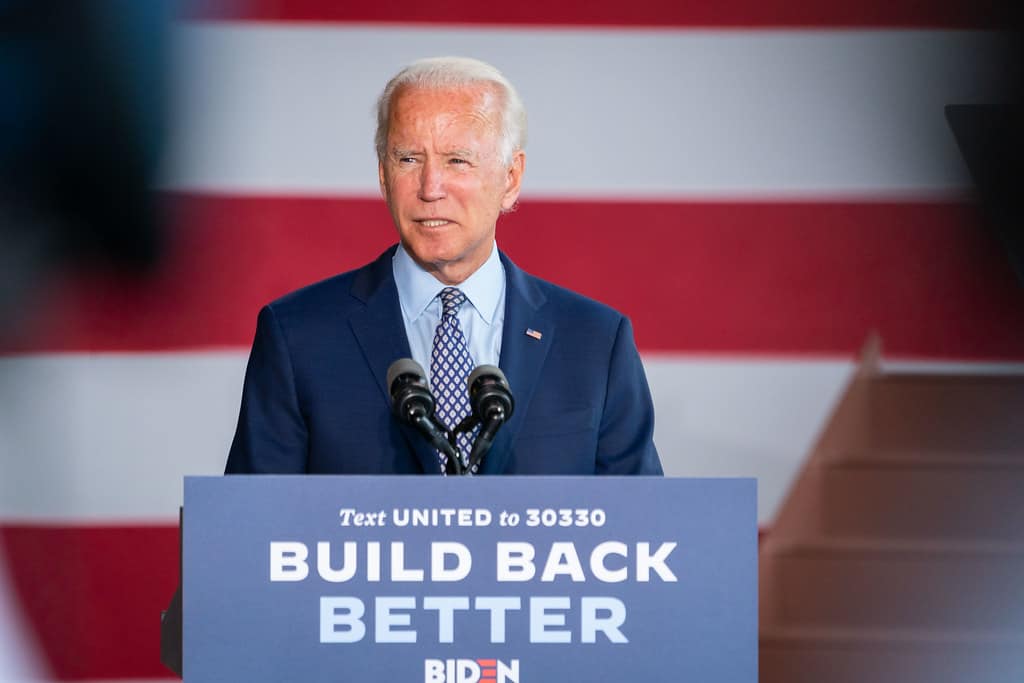
Tascha Shahriari-Parsa is a government lawyer enforcing workers’ rights laws. He clerked on the Supreme Court of California after graduating from Harvard Law School in 2024. His writing on this blog reflects his personal views only.
Yesterday, over 750 organizations, elected leaders, and other individuals signed a letter to Senate Majority Leader Chuck Schumer to make sure that the Build Back Better Act budget reconciliation bill maintains its paid leave provisions. In the version passed by the house, the bill would provide a near-universal benefit of four weeks paid time off for a worker suffering from illness or needing to care for a sick family member. The White House also announced yesterday that it will encourage employers to give workers paid time off for booster shots in order to mitigate the spread of the COVID-19 omicron variant. Studies have shown strong links between sick leave policies like the Families First Coronavirus Response Act (FFCRA) and reductions in COVID-19 outbreaks in the United States.
The AFL-CIO and a number of labor unions backed the Department of Labor’s emergency motion to the Sixth Circuit asking the court to block the Fifth Circuit’s freeze on OSHA’s Emergency Protected Standard (ETS). The ETS requires employers with 100 or more employees to require their employees to either be vaccinated against COVID-19 or undergo weekly testing and wear masks at work. The challenge to OSHA’s ETS, backed by 27 states and the RNC, claims that OSHA lacks the delegated legislative authority to promulgate the ETS for such an issue of national economic and political significance without “exceedingly clear language” from Congress. In response, union petitioners argued that “[t]here has not been an occupational health crisis of this magnitude in our lifetimes . . . . Certainly, the need to protect workers from this tragedy tips the scales in favor of keeping the ETS in effect. The Fifth Circuit did not even mention this harm before deciding to stay the ETS.” The Fifth Circuit specifically focused on the fact that COVID-19 is a virus and also exists outside of the workplace, which the DOL called a “rationale [that] has no basis in the statutory text.” The Sixth Circuit was chosen through a lottery by the U.S. Judicial Panel on Multidistrict Litigation to oversee the litigation after the Fifth Circuit froze the ETS.
Yesterday, Judge Cory Wilson of the Fifth Circuit denied a motion from the U.S. Department of Justice to intervene in United Natural Foods Inc’s challenge that former acting general counsel of the NLRB Peter Ohr lacked authority because his predecessor Peter Robb was unlawfully removed from office by President Biden. The case was taken up by the NLRB in April, when the Board held that it did not have jurisdiction to review the president’s actions. As Fred previously wrote on this blog, the legal challenge to Ohr’s authority “remains, on the merits, tenuous” and “many have cast doubt that the attacks will amount to anything more than a time and resource drain for the NLRB . . . .” The DOJ argued that they should be allowed to intervene because the case could have significant ramifications for the president’s power.
A UAW referendum for “one member, one vote”—implementing a direct voting system for the selection of union representatives—came out in favor of direct elections with 63.6% of the vote. The Harvard Graduate Students Union was the local with the largest percentage of votes in favor of the referendum, with 97% of members voting in the affirmative. In general, a large proportion of the referendum’s yes vote came from higher education, which makes up a fifth of the UAW’s membership.
On Wednesday, the Boston City Council approved a pilot program proposed by mayor Michelle Wu to make several bus lines transit-free. The program uses funds from the American Rescue Plan to reimburse the Massachusetts Bay Transportation Authority and follows Michelle Wu’s campaign goal of making public transportation free, beginning with bus service. The bus routes in the pilot program are in areas with high proportions of low-income people of color. When the city eliminated fares on the 28 bus earlier this summer, ridership increased substantially. Eliminating fares has significant benefits now for ensuring that everyone has a means of transportation available and increasing people’s mobility, including to get to work. Fare elimination can also help us avoid climate disaster by disincentivizing people from driving. Somewhere around 100 cities in the world have already instated free public transportation, including Kansas City, Missouri and Olympia, Washington.






Daily News & Commentary
Start your day with our roundup of the latest labor developments. See all
February 19
Union membership increases slightly; Washington farmworker bill fails to make it out of committee; and unions in Argentina are on strike protesting President Milei’s labor reform bill.
February 18
A ruling against forced labor in CO prisons; business coalition lacks standing to challenge captive audience ban; labor unions to participate in rent strike in MN
February 17
San Francisco teachers’ strike ends; EEOC releases new guidance on telework; NFL must litigate discrimination and retaliation claims.
February 16
BLS releases jobs data; ILO hosts conference on child labor.
February 15
The Office of Personnel Management directs federal agencies to terminate their collective bargaining agreements, and Indian farmworkers engage in a one-day strike to protest a trade deal with the United States.
February 13
Sex workers in Nevada fight to become the nation’s first to unionize; industry groups push NLRB to establish a more business-friendly test for independent contractor status; and UFCW launches an anti-AI price setting in grocery store campaign.